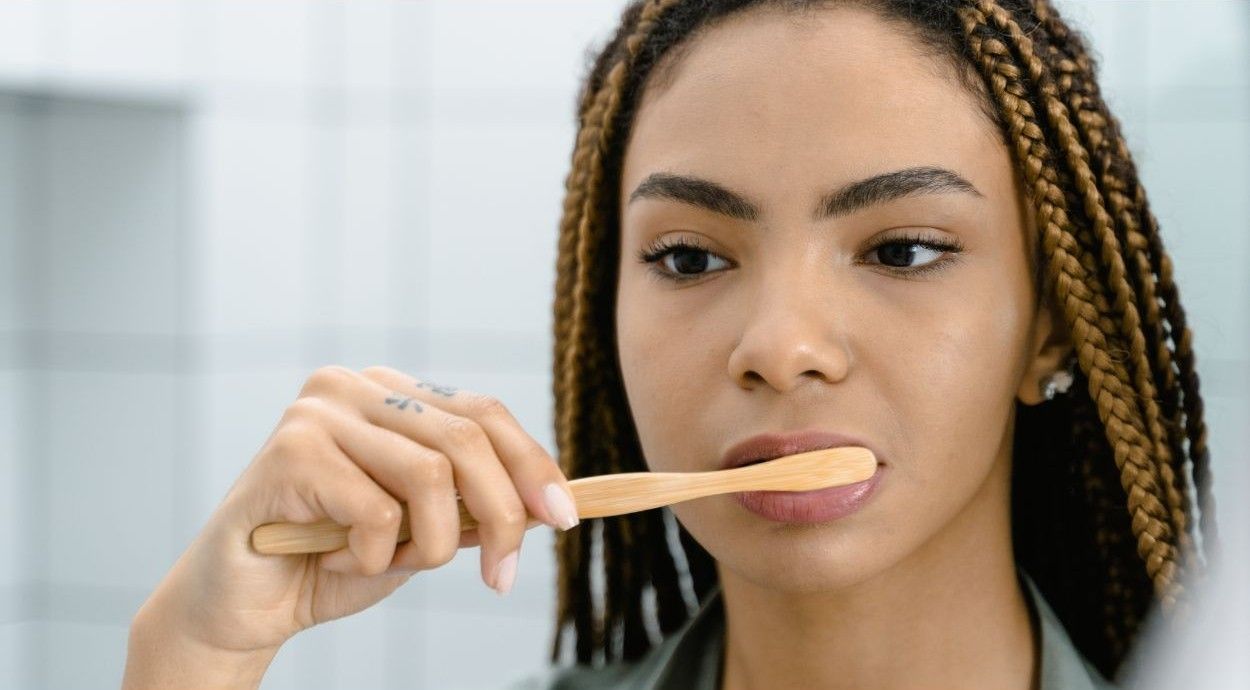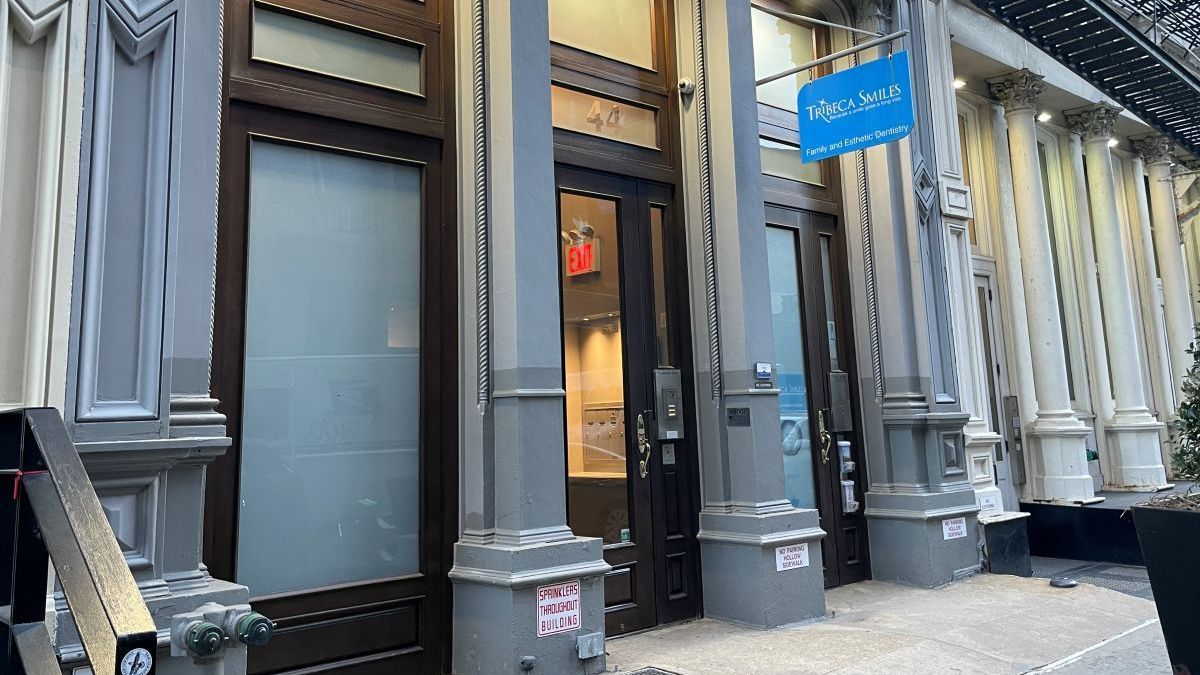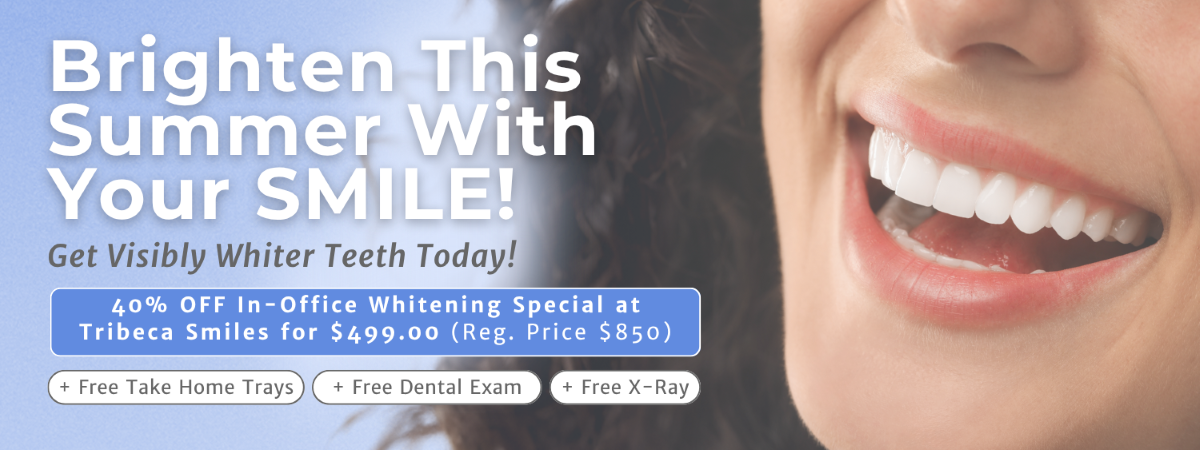Why We Don't Recommend Charcoal Toothpaste for Teeth Whitening: Risks to Your Enamel
Key Takeaways
- Charcoal toothpaste for teeth whitening poses significant risks to your enamel through its abrasive action, potentially causing permanent damage.
- Scientific evidence doesn't support manufacturer claims about whitening effectiveness, with most products lacking the ADA Seal of Approval.
- Safe alternatives like professional whitening treatments and ADA-approved products offer better results without compromising your dental health.

| Table of Contents |
|---|
| 1. What Is Charcoal Toothpaste and Why Is It Popular for Teeth Whitening? |
| 2. How Charcoal Toothpaste Claims to Work vs. Reality |
| 3. The Dangers of Charcoal Toothpaste to Your Enamel |
| 4. Understanding Toothpaste Abrasivity: The RDA Scale |
| 5. Beyond Enamel Damage: Additional Risks of Charcoal Toothpaste |
| 6. The ADA Position on Charcoal Toothpaste |
| 7. Safe Alternatives for Teeth Whitening |
| 8. Conclusion: Why Dental Professionals Don't Recommend Charcoal Toothpaste |
| 9. Frequently Asked Questions |
What Is Charcoal Toothpaste and Why Is It Popular for Teeth Whitening?
- Made from activated charcoal heated to create a highly porous substance with adsorptive properties.
- Gained popularity through social media marketing as a "natural" alternative for teeth whitening.
- Lacks the American Dental Association's Seal of Acceptance despite its trendy status.
Charcoal toothpaste for teeth whitening has become a trending oral care product, with its distinctive black color and promises of a brighter smile. Charcoal toothpaste products contain activated charcoal derived from natural carbon-rich materials like wood, coconut shells, or peat that's heated to extremely high temperatures. This process creates a highly porous substance known for its adsorptive abilities.
The popularity of charcoal toothpaste stems largely from clever marketing and social media influence. Manufacturers promote these products as "natural" alternatives to conventional whitening methods, often highlighting their supposed detoxifying properties and gentle whitening action. You might've seen these claims all over Instagram, TikTok, or from your favorite influencers.
But is the hype justified? Despite their trendiness, dental professionals have serious concerns about these products. The American Dental Association (ADA) has not granted its Seal of Acceptance to any charcoal toothpaste, which should raise some red flags for anyone considering adding this product to their oral care routine.
How Charcoal Toothpaste Claims to Work vs. Reality
The Marketing Claims:
- Adsorption: Manufacturers claim activated charcoal's negative charge attracts and binds to stains, plaque, and bacteria, lifting them away from your teeth.
- Abrasion: The gritty texture of charcoal particles physically scrubs surface stains, similar to traditional whitening toothpastes.
What Science Actually Shows:
- Scientific analysis reveals any whitening effect comes primarily from abrasion, not adsorption.
- This distinction matters because the same abrasive action that might remove some stains is also what potentially damages your enamel.
- Research shows no evidence that charcoal toothpaste affects intrinsic stains (within tooth structure) or provides true bleaching.
- At best, these products only remove some surface stains through abrasion—something standard toothpastes do more safely.
The Dangers of Charcoal Toothpaste to Your Enamel
Your tooth enamel is the hardest substance in your body, forming a protective shield over the more sensitive inner layers of your teeth.
Despite its strength, enamel is vulnerable to wear from highly abrasive substances—and once damaged, it can't regenerate.
This is where the risks of charcoal toothpaste become apparent.
Numerous studies have documented increased enamel surface roughness after simulated brushing with various charcoal toothpastes. Some research has quantified actual tooth substance loss following regular use of certain charcoal brands.
The consequences of this abrasive action include:
- Enamel Wear: Repeated brushing with an overly abrasive charcoal toothpaste can physically wear away your protective enamel layer over time.
- Increased Surface Roughness: Abrasion creates microscopic scratches and irregularities on your tooth surface.
- Plaque Accumulation: A rougher tooth surface provides more places for plaque bacteria to stick and grow, potentially increasing your risk of cavities and gum disease.
- Increased Staining: Ironically, those rough surfaces can attract and retain stains more easily, making your teeth more prone to discoloration over time.
- Dentin Exposure & Yellowing: As enamel thins, the underlying dentin layer becomes visible. Since dentin is naturally yellower than enamel, this can make your teeth appear darker—the opposite of the whitening effect you're seeking.
- Tooth Sensitivity: Enamel loss and dentin exposure are primary causes of painful tooth sensitivity to hot, cold, sweet, or acidic foods and drinks.
What makes this particularly concerning is that these effects are irreversible. No amount of dental treatment can restore your natural enamel once it's worn away.
Understanding Toothpaste Abrasivity: The RDA Scale

lues indicate gentler action on tooth structure. A common interpretation of the RDA scale is:
- 0-70: Low Abrasive
- 71-100: Medium Abrasive
- 101-150: Highly Abrasive
- 151-250: Harmful Limit
Independent laboratory testing of various charcoal toothpastes has revealed that their abrasivity levels vary dramatically from one brand to another. Studies measuring RDA values for commercially available charcoal toothpastes have reported values ranging from 26 (low) to 166 (high/harmful).
What's particularly troubling is that manufacturers rarely disclose RDA values on packaging, making it nearly impossible for consumers to gauge the abrasive risk of any specific charcoal toothpaste before purchase. Just because a product is marketed as "natural" doesn't guarantee low abrasivity—some tested "natural" charcoal brands exhibited moderate to high RDA values.
Beyond Enamel Damage: Additional Risks of Charcoal Toothpaste
The potential harm from charcoal toothpaste extends beyond just enamel wear:
Missing Fluoride Protection
Many charcoal toothpastes are intentionally formulated without fluoride, often marketed as a "fluoride-free" feature. This is problematic because fluoride plays a crucial role in preventing tooth decay by strengthening enamel, inhibiting demineralization, and promoting remineralization of early cavities.
Even when fluoride is included, there's concern that activated charcoal might bind to fluoride ions, reducing their availability to protect your teeth. By choosing a non-fluoridated charcoal toothpaste for daily use, you're foregoing one of the most effective preventive measures against cavities.
Impact on Gums and Soft Tissues
The abrasive particles in charcoal toothpaste may irritate your gums and other soft tissues in your mouth. The gritty texture can cause mechanical irritation to delicate gingival tissues, potentially leading to inflammation, redness, swelling, or even receding gums over time, especially if combined with aggressive brushing.
Gum recession exposes tooth roots, which lack protective enamel, making them more susceptible to sensitivity and root cavities.
Effects on Dental Restorations
If you have fillings, crowns, veneers, or bridges, charcoal toothpaste introduces additional risks. The long-term effects of charcoal abrasion on common dental restorative materials are largely unknown or insufficiently studied.
A specific concern is the potential for charcoal particles to accumulate in the microscopic gaps between your natural tooth and restorations. This could lead to black or gray staining along the edges of fillings, crowns, or veneers, compromising the appearance of your dental work.
Other Potential Concerns
- Carcinogen Content: Activated charcoal itself is classified as a carcinogen
by some federal bodies, and certain charcoal toothpaste brands have been found to contain crystalline silica, another recognized carcinogen.
- Microbiome Disruption: Activated charcoal's broad adsorptive properties might disrupt the delicate balance of beneficial bacteria in your mouth.
- Drug Interactions: While toothpaste isn't meant to be swallowed, accidental ingestion can occur. Because activated charcoal is known to adsorb various drugs in the digestive system, it could theoretically interfere with the absorption of certain medications, including oral contraceptives.
The ADA Position on Charcoal Toothpaste
The American Dental Association has consistently expressed caution regarding charcoal-based dental products. Their stance reflects the lack of scientific evidence supporting claims made for charcoal toothpastes.
Key points from the ADA include:
- Insufficient Evidence: There is inadequate clinical and laboratory data to prove charcoal toothpastes are safe or effective for teeth whitening or other claimed benefits.
- Caution Advised: The ADA recommends dental professionals advise patients to exercise caution when considering charcoal-based oral hygiene products.
- Abrasion Risk: The Association explicitly acknowledges concerns about the abrasive nature of charcoal particles and their potential to wear down enamel.
- Fluoride Importance: The ADA emphasizes the critical role of fluoride in cavity prevention and points out that many charcoal formulations lack this essential ingredient.
Perhaps most tellingly, no charcoal toothpaste product has ever earned the ADA Seal of Acceptance. This seal represents a rigorous evaluation process where products must provide scientific evidence demonstrating both safety and efficacy.
The complete absence of the ADA Seal on any charcoal toothpaste product speaks volumes about their questionable benefits and potential risks.

Safe Alternatives for Teeth Whitening
If you're seeking a brighter smile, numerous safe and effective alternatives are supported by scientific evidence and recommended by dental professionals:
Professional Whitening Options at Tribeca Smiles
Professional in-office whitening performed by a dentist offers the fastest and most controlled results. At Tribeca Smiles, we offer KöR Whitening, a highly effective system that can dramatically improve your smile while protecting your enamel.
Dentist-supervised at-home whitening is another excellent option, involving custom-fitted trays and professional-strength gel that you use at home. This approach balances convenience with professional oversight.
Over-the-Counter Products with ADA Approval
Several effective options are available for purchase without a prescription:
- ADA-Accepted Whitening Toothpastes: These work using mild abrasives or enzymes to remove surface stains. Some contain low concentrations of peroxide for a mild bleaching effect.
- Whitening Strips: These thin, flexible strips coated with a peroxide-based bleaching gel are applied directly to teeth. Several brands have earned the ADA Seal.
- Whitening Mouthwashes: While less potent than other methods, these can help maintain results when used as part of a comprehensive whitening routine.
Maintaining Good Oral Hygiene
Remember that maintaining excellent oral hygiene is fundamental for a healthy, naturally bright smile:
- Brush twice daily for two minutes with an ADA-accepted fluoride toothpaste
- Floss daily to clean between teeth
- Get regular dental cleanings
- Minimize consumption of staining substances like coffee, tea, red wine, and tobacco
Looking for natural teeth whitening methods that are actually safe? Check out our guide to options that won't compromise your dental health.
Conclusion: Why Dental Professionals Don't Recommend Charcoal Toothpaste
After reviewing the scientific evidence, the risks of charcoal toothpaste clearly outweigh any potential benefits:
- The central claims of significant teeth whitening are largely unsubstantiated by rigorous research.
- Any limited ability to remove surface stains comes from abrasion, which poses significant risk of irreversible damage to tooth enamel.
- Many charcoal toothpastes lack fluoride, undermining cavity prevention.
- No charcoal toothpaste has earned the ADA Seal of Acceptance.
As dental professionals at Tribeca Smiles, we prioritize treatments that are both effective and safe for your long-term oral health. That's why we don't recommend charcoal toothpaste for teeth whitening and instead offer proven alternatives that protect your smile while improving its appearance.
If you're considering teeth whitening, we encourage you to consult with our cosmetic dentistry experts who can recommend the most appropriate approach based on your specific needs and oral health condition.
Frequently Asked Questions About Charcoal Toothpaste for Teeth Whitening
Is charcoal toothpaste safe for daily use?
No, dental professionals generally don't recommend charcoal toothpaste for daily use due to its potentially high abrasivity that can damage enamel over time. Additionally, many charcoal toothpastes lack fluoride, which is essential for preventing cavities.
Does charcoal toothpaste actually whiten teeth?
Scientific evidence doesn't support significant whitening claims. Any minor improvement likely comes from abrasion of surface stains rather than true bleaching, and this effect is typically less impressive than professional whitening methods or even ADA-approved over-the-counter products.
Can charcoal toothpaste make teeth yellower over time?
Yes, ironically it can. Excessive abrasion wears down enamel, potentially exposing the naturally yellower dentin underneath. Additionally, roughened enamel surfaces can attract and retain more stains over time.
Are there any people who should definitely avoid charcoal toothpaste?
People with existing enamel erosion, tooth sensitivity, gum recession, or extensive dental work (fillings, crowns, veneers) should particularly avoid charcoal toothpaste as they may be more vulnerable to its potential negative effects.
What's the most effective teeth whitening method that's also safe?
Professional whitening treatments supervised by dentists, such as in-office procedures or custom take-home trays, provide the best balance of effectiveness and safety. These methods use proper concentrations of peroxide-based whitening agents and can be tailored to your specific needs.
How can I tell if a toothpaste is too abrasive for my teeth?
Look for the ADA Seal of Acceptance, which indicates the product has been tested for safety, including appropriate abrasivity levels. If you experience increased sensitivity or your teeth appear more yellowed after using a particular toothpaste, that could indicate it's too abrasive for your teeth.
Are "natural" teeth whitening methods always safer than commercial products?
Not necessarily. Many "natural" methods, including charcoal, can be abrasive or acidic, potentially damaging enamel. Commercial products with the ADA Seal have been tested for safety and efficacy, often making them a better choice than untested natural remedies.
How often should I whiten my teeth to maintain results without damaging enamel?
This varies depending on the whitening method used and individual factors like diet and oral hygiene. Generally, professional in-office treatments might be done once or twice yearly, while at-home products should be used according to manufacturer directions and dental professional guidance. Always prioritize the health of your teeth over frequency of whitening.



